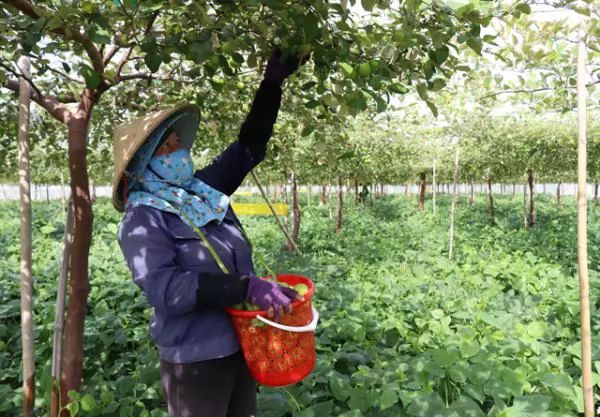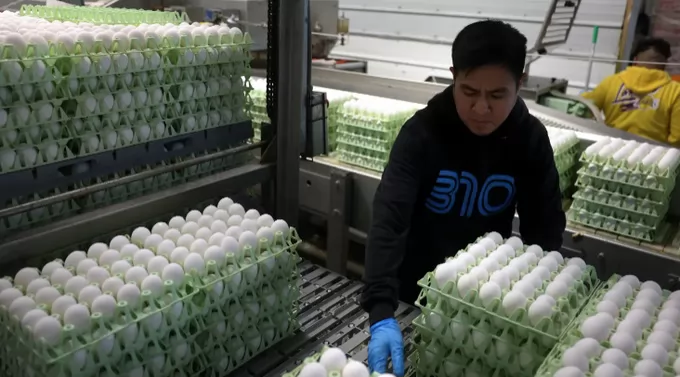Goat breeding brings high incomes to farmers in Bến Tre

A farmer breeds goats in Bến Tre Province. – VNA/VNS Photo Huỳnh Phúc Hậu
BẾN TRE – Breeding goats has helped many farmers in the Cửu Long (Mekong) Delta province of Bến Tre escape poverty and have a stable income as the animal is easy to breed and does not require large investment.
Nguyễn Văn Chí from Giồng Trôm District’s Phong Mỹ Commune has switched to goat breeding after farming a 2,000-sq.m rice field and occasionally working as a daily hired worker.
Chí borrowed bank loans to buy male goats to breed mostly for meat and female goats for reproduction purposes.
He now has more than 20 female goats and more than 30 male goats, earning a profit of VNĐ120 – 140 million (US$5,160 – 6,000) a year.
Similarly, Huỳnh Ngọc Đức from Giồng Trôm’s Châu Bình Commune has escaped poverty from breeding goats and has a stable life now.
Đức bought one female goat for breeding in 2010 and now has more than 100 goats.
He has switched from breeding Bách Thảo to Boer goats as the latter is preferred in the local market.
Boer female goats can deliver babies three times in two years. A 3-month-old Boer goat can be sold for meat after breeding for five to six months.
“I breed Boer goats because they produce more meat and have a shorter breeding period,” Đức said.
Nguyễn Thành Nu, deputy chairman of the Bình Châu Commune Farmers Association, said the commune had about 20 effective goat breeding models which had helped reduce poverty.
Goats have few diseases and can live well in saltwater-affected areas in the province’s coastal districts.
Võ Hoài Phong, who breeds more than 60 goats in the coastal district of Thạnh Phú, said that goats could thrive in harsh conditions as they can eat various types of leaves such as mangrove and other plants grown in saltwater areas.
He sells 30 – 40 goats a year, earning more than VNĐ100 million ($4,300) annually.
Bến Tre has more than 160,000 goats, according to the province’s Animal Health and Animal Husbandry Sub-department.
Trần Quang Thái, head of the sub-department, said the price of goats was high as domestic demand was increasing.
To further improve incomes, the province was building value chains for goats bred by local farmers. – VNS
Maybe you are interested

Quality jujube yields high profits for Ninh Thuận farmers
NINH THUẬN - Farmers in Ninh Thuận Province are being encouraged to expand cultivation of high-quality jujube and open up their orchards to tourists.

“Breeding cows'' for poor families in remote area
PANO - Ea Rot village in Cu Pui commune of Krong Bong district, Dak Lak province has 192 households with a population of 1,028 persons, of whom 99% are H'mong ethnic people.

Are socially distanced chickens laying more affordable eggs?
Shoppers used to picking up the cheapest eggs at the grocery store may now be reaching for higher-end cartons.





